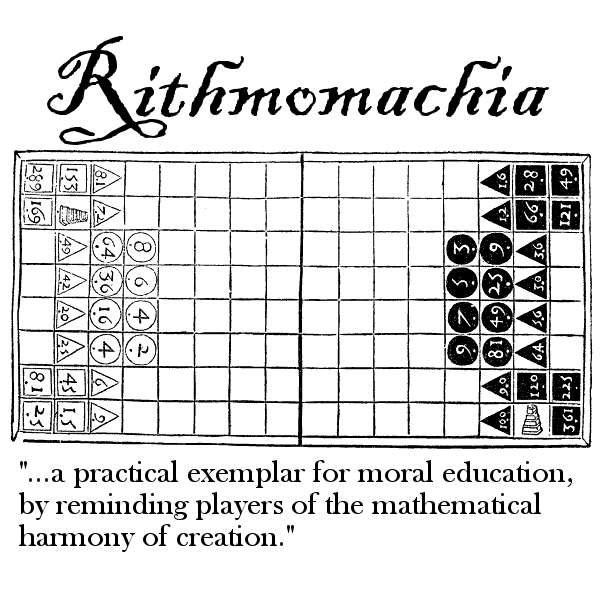I think it's harder to understand the role of religion over the bulk of human history from the perspective of the 'enlightened' 21st century. PERSONALLY, I think the social 'sciences' broadly do a horseshat job of understanding just about ANYTHING contextually given contemporaneous beliefs, conditions, values, etc.
For example, while we all recognize there are many things we don't know, the bulk of what we see and do every day is explainable. We know why the sun moves across the sky, we know where infections come from, we understand why those people have different color skin than we do. Hell, kindergartners understand and accept germ theory, the big bang, atomic theory, gravity, etc. For people even a handful of centuries ago, all of this was systemically inexplicable. Some people got sick and died, we don't know why. Half of all children or more, dead, in many cases inexplicably. Some people started behaving crazily, again, no idea why, nothing to do but conk them on the head and chain them up in the barn until they died.
Some brave social anthropologists have done research that suggests strongly that:
a) religion simply made people behave better generally. With small children, the idea that there is an 'invisible grownup' in the room made them much less likely to cheat, much more likely to follow rules, much more likely to cooperate. Is this a 'control' mechanism, or was it observationally true that people who belonged to church (and in most places there WAS only one, so there was no confusion about which was 'right') cooperated better and were simply generally more successful
b) adherence to the visible tenets of a religion (going to temple regularly, observing the dictated trivial restrictions, etc.) was a strong correlative to people who could behave according to the accepted rules of a society. If they could discipline themselves enough to wear a little hat (for example), or so the theory goes, they could be expected to discipline themselves to follow other, more critically-important rules of a society.
Did it mean that in some cases outsiders were treated harshly? Yep. But again, omlettes and eggs. Today, we have an extraordinarily resilient society, we can tolerate assholes. But if you're barely surviving in a lifeboat, you need to pitch the boat-rockers out to save the rest. And let's recall further that the definition of outsider - while fixed and generally unchangeable so seemingly harsh from our view - was rarely arbitrary. Generally the 'rules' were determined and understood for generations if not centuries.
Again, secularists LOOKING to call this 'control' miss the boat.
When a small group/clan/village/whatever is riding barely above the margin of sustainability over long spans of time, this sort of consensus (call it a consensual delusion if you need to salve your modern sensibilities) meant that some communities survived, where others didn't.
And really, isn't that pretty much the only yardstick we HAVE for "success" in the real world?
For example, while we all recognize there are many things we don't know, the bulk of what we see and do every day is explainable. We know why the sun moves across the sky, we know where infections come from, we understand why those people have different color skin than we do. Hell, kindergartners understand and accept germ theory, the big bang, atomic theory, gravity, etc. For people even a handful of centuries ago, all of this was systemically inexplicable. Some people got sick and died, we don't know why. Half of all children or more, dead, in many cases inexplicably. Some people started behaving crazily, again, no idea why, nothing to do but conk them on the head and chain them up in the barn until they died.
Some brave social anthropologists have done research that suggests strongly that:
a) religion simply made people behave better generally. With small children, the idea that there is an 'invisible grownup' in the room made them much less likely to cheat, much more likely to follow rules, much more likely to cooperate. Is this a 'control' mechanism, or was it observationally true that people who belonged to church (and in most places there WAS only one, so there was no confusion about which was 'right') cooperated better and were simply generally more successful
b) adherence to the visible tenets of a religion (going to temple regularly, observing the dictated trivial restrictions, etc.) was a strong correlative to people who could behave according to the accepted rules of a society. If they could discipline themselves enough to wear a little hat (for example), or so the theory goes, they could be expected to discipline themselves to follow other, more critically-important rules of a society.
Did it mean that in some cases outsiders were treated harshly? Yep. But again, omlettes and eggs. Today, we have an extraordinarily resilient society, we can tolerate assholes. But if you're barely surviving in a lifeboat, you need to pitch the boat-rockers out to save the rest. And let's recall further that the definition of outsider - while fixed and generally unchangeable so seemingly harsh from our view - was rarely arbitrary. Generally the 'rules' were determined and understood for generations if not centuries.
Again, secularists LOOKING to call this 'control' miss the boat.
When a small group/clan/village/whatever is riding barely above the margin of sustainability over long spans of time, this sort of consensus (call it a consensual delusion if you need to salve your modern sensibilities) meant that some communities survived, where others didn't.
And really, isn't that pretty much the only yardstick we HAVE for "success" in the real world?

